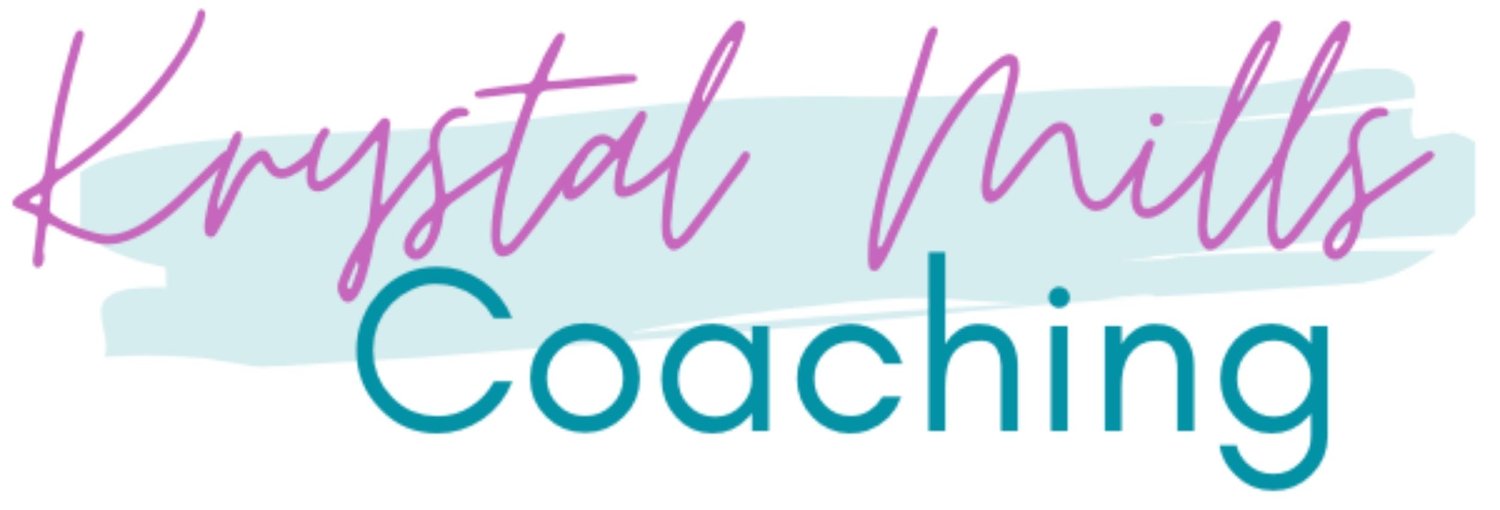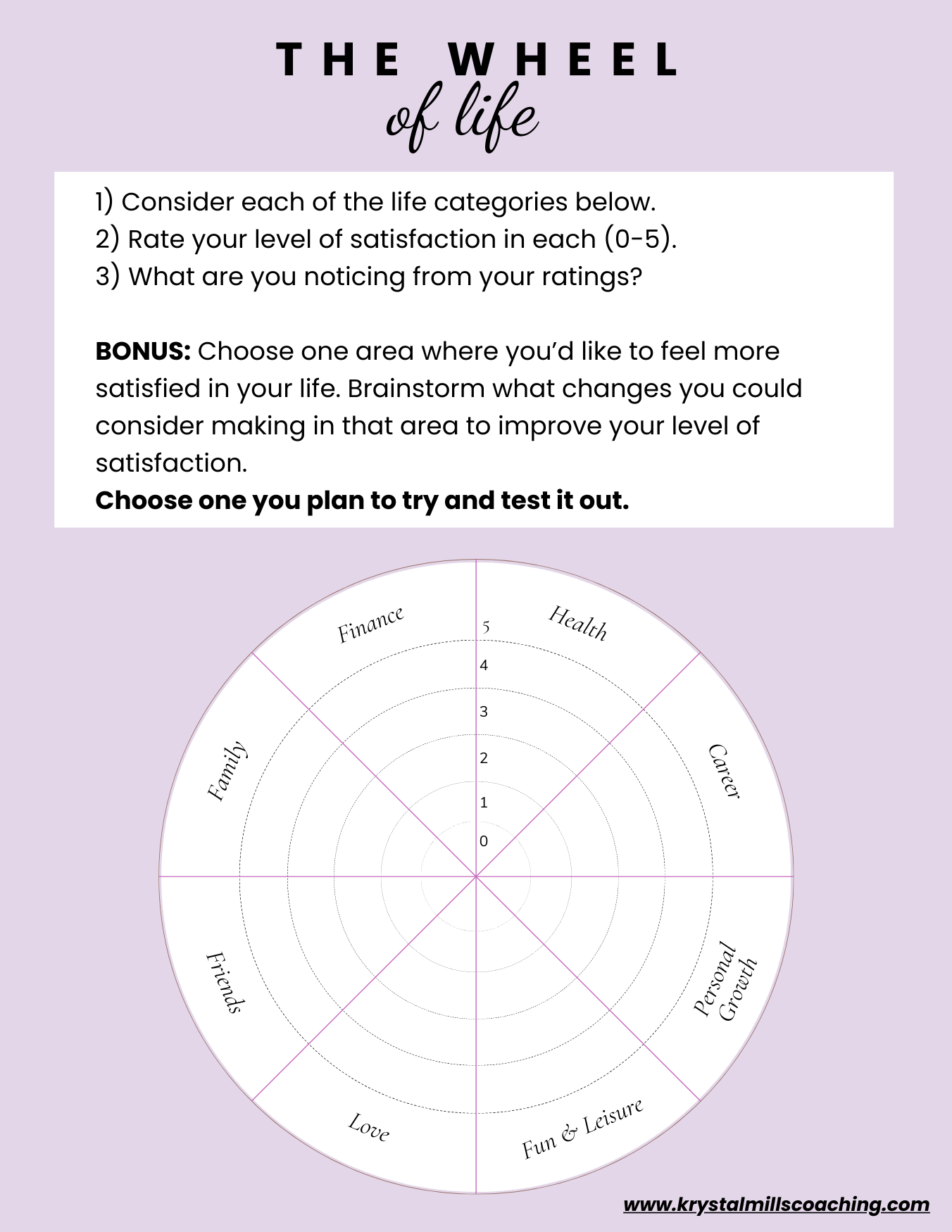What is life coaching and how can it help you as a teacher?
Most people have a vague idea about what they think life coaching is.
Usually, it comes from a tv episode they saw one time, where the main character had some kind of a midlife crisis and shows up a changed woman, informing her family…she’s quit her job and become… a life coach.
We all laugh but also feel a little bad for her. It’s so cliche. Isn’t everyone calling themselves a life coach these days?
If I’m being honest, before I knew what life coaching was I was right there laughing along with everyone else.
And, if someone had told me even 6 or 7 years ago that someday I’d be calling myself a life and mindset coach - I would have rolled my eyes and said “Sure… I’ll save some room beside my Master’s of Ed degree.” And then I likely would have said something about coaching not actually being a real thing.
Well, life is funny.
Because now I do have my coaching certification (though, none of my diplomas or certs are on the wall) and hundreds of hours helping folks with life stuff and mindset stuff (what I do is a combo of life + mindset coaching), and now I cringe at those tv show moments.
I get why they make the jokes: Life coaching is all over the Internet and it’s an easy target.
But the truth is that now I know what that lady on the tv show figured out.
I know the power behind life coaching.
Coaching is a very real thing.
I’ve experienced it myself and I’ve helped my clients make huge shifts, changing their mindsets, reaching their goals, and transforming their lives.
So now, those shows - not quite so funny.
So what actually IS life coaching and why would you need it?
You may be wondering… are you just going to tell me how to live my life?
No, I’m not, although that’s probably what’s behind the joke on those shows. Usually, the character who becomes the life coach is a “hot-mess express” and that’s why you laugh. You’re thinking how could YOU possibly help me with my life when your life is the definition of a shit-show?
I coach mostly with teachers (though I do coach other folks as well) and I think one of the reasons I connect with my clients is the shared experience of both of us being teachers. We both get it.
So let me explain life coaching in teacher terms you will most likely relate to.
It’s Monday at 3:15 and there must be a full moon tonight because the kids were off the wall. You head next door to vent to your teacher bestie about your day. She listens and shares that she also had a rough day. You empathize with each other and it feels great to have someone to relate to.
Great. Lovely.
But what if tomorrow rolls around and it’s more of the same?
Stressed, venting, heading home feeling irritated.
Your patience is thin with your own kids and you start to feel overwhelmed by your days instead of enjoying them.
You wake up, not super excited for your day, with a mental list of the things you need to do today being compiled in your head before your feet even hit the floor.
You find yourself getting tired, feeling low energy, and frustrated because you can’t stop yourself from flopping on the couch as soon as you get home (which means that not much gets done)
It’s at this point:
When the overwhelm kicks in and you start to feel like you have more things to do than time to do them…
When you realize that you haven’t done anything for yourself in a while
When you start feeling stuck, that life coaching may be exactly what you need.
Basically, life coaching is a process where we work together as thinking partners to sift through what’s going on for you and figure out how you can move toward the life you want to have.
Part of why it feels great to vent at the end of a tough school day is that you’re taking the time to express yourself out loud. You’re getting it all out.
Coaching gives you that space too, to verbally process what’s going on for you, what you’re struggling with, and what you’d really like to have instead. But, instead of your teacher-bestie taking half the air time because that’s how a normal conversation works, with coaching, the focus remains on you for the full time.
What’s my role as your coach?
I listen.
I ask questions to clarify what’s going on and help you get to the heart of what the challenges are for you.
We’re thinking partners, and though we’re on friendly terms, we’re not friends. And so, I may ask tough questions that your teacher-bestie may avoid, but that you need to think about, to move forward.
I’ll share specific tools, strategies, or resources based on what’s going on for you, and together, we create a plan for you to take action on what it is that you actually want, one small, doable step at a time.
Whether that’s to:
Shut off your teacher brain when you get home from school so you can focus on your family
Find more time for yourself amidst family and school commitments
Figure out how you can leave at contract time more often, without feeling totally unprepared for the next day
With coaching, you become more aware of your thoughts, and how they’re affecting your actions.
The goal is for you to learn strategies that work for you, allowing you to make progress, move toward the life you want to have, and feel positive about that progress.
Sometimes people wonder if coaching is like therapy. The short answer is “Not really”, but they are definitely connected and sometimes there is some overlap.
Usually, coaching:
- Focuses on setting and achieving goals
- Emphasizes personal growth and self-improvement
- Helps you identify your strengths and weaknesses
- Provides guidance and support in making positive changes
- Typically short-term and goal-oriented
While therapy:
- Focuses on addressing and resolving psychological issues
- Emphasizes understanding and healing past traumas
- Helps you explore emotions and thoughts
- Provides diagnosis and treatment for mental health disorders
- Typically long-term and process-oriented
Your past makes you who you are and is the reason for many of the thoughts and beliefs that you hold. Those same thoughts and beliefs can be what’s holding you back, right now, causing you to feel how you’re feeling.
So, this is where coaching and therapy cross over a bit.
Instead of working to heal past trauma (the role of a therapist) coaches focus on self-awareness, personal growth, and development and we stay focused on the present and the future, taking small action steps to move you closer to the results you want.
So, if we worked together what kinds of things would we work on?
Check out the next blog post for a few real-life examples.
Want a little taste of coaching before you go?
I’d love to leave you with a popular coaching tool to help you think about the different areas of your life, how things are going in each area, and if you were going to make some shifts, where you’d want to begin.
I give you…The Wheel of Life.
If you do try out the Wheel of Life exercise - reach out and let me know if you have any questions and let me know how it goes: hello@krystalmillscoaching.com


